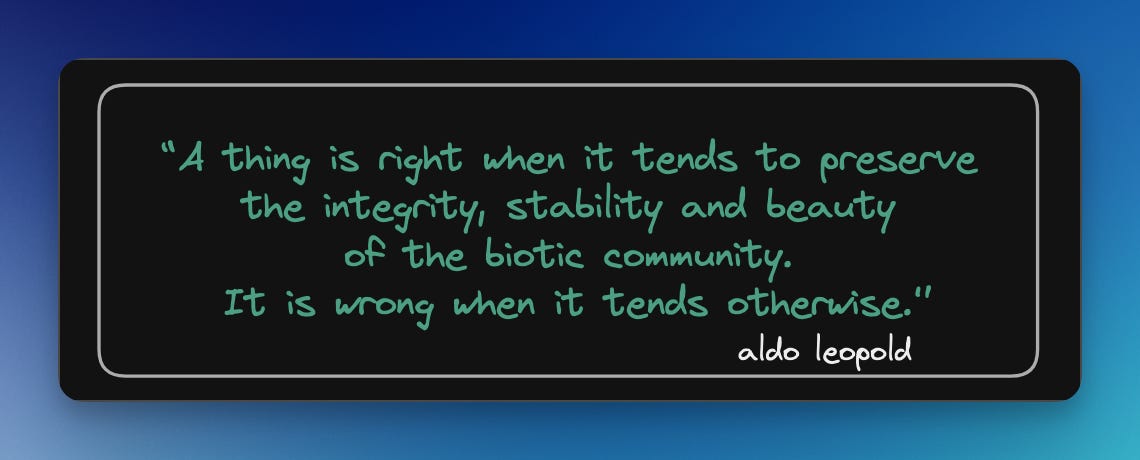Finally, in April, the year truly begins. In every shade of green and gold, buds burst into leaf and flower. Bees buzz, birds nest, the Earth smells sweet of humus and pollen and pine.
April. I am born. Aldo Leopold dies. And at the first April Earth Day in 1970, my friends and I allowed ourselves to think that humanity had reached a turning point in its checkered relationship with a planet—very hospitable and livable, if we’d let it be.
Life emerges again in April, and Leopold has become part of my Aprils. I was able to explain this fact to some spring-breaking college students last month at Apple Ridge Farm up here on the Plateau.
I turned 75 this month. These students were in their early twenties. I asked them, in our hour together, to revisit the world I lived in when I was their age.
I turned 22 less than two weeks before the first Earth Day in 1970.
To explain how Earth Day 1970 had altered the trajectory of my understanding of the planet we live on, I needed to tell these young people about forester Aldo Leopold–an ecologist and environmentalist, before these were even well-known words. Only one student in my small audience had ever heard his name.
Leopold died 75 years ago today, on April 21, 1948, fighting a brush fire on a neighbor’s land. His book, Sand County Almanac, was published posthumously in 1949. I read it in the summer of 1970. He advocated for a new way to understand our relationship with Earth. The first time I read his term “land ethic” he had me for life. I knew this was a right way to think for the rest of my years—of which there have since been considerable.

Ethics had always been a standard for right behavior in our relationships with other living things–people; pets; livestock. But Leopold said we should foster the same right behavior, the same basis for right or wrong choices when considering the fate of any given parcel of land and all its living community—and true for a woodlot, a National Forest or the planet’s biosphere.
“We abuse land because we regard it as a commodity belonging to us. When we see land as a community to which we belong, we may begin to use it with love and respect.” Aldo Leopold
For a while in the early 70s, it seemed that the “first world” was embracing the long-term best interests of the planet: its air and water, soil and forests, and its myriad living creatures.
The Clean Air Act, the Clean Water Act, the Endangered Species Act and other collective decisions sought to reverse decades of ethical indifference and mindless abuse of the largest landscape we call “the environment.” Leopold was not around in 1970, but he would have been so pleased to see that we had come to our senses. Then we lost them again in the 80s.
And once again, children, it’s time “we got ourselves back to the garden.”
Leopold’s land ethic for me is best summarized in this quote below. It has been at the core of my understanding of stewardship now since 1970.

I left these students to consider our conversation as they lived out the next half century of their lives on a planet where, whether we’ve acknowledged it or not, the foundation of all Earth economies has been and will always be “the land.” We now call it “nature” or “the environment.” We’ve acted as if those things were nice but not essential to our collective well-being.
We were way wrong.
So if human society is to live according to this priority of putting the biological health of ecosystems before corporate profit or national interests, what changes will be required in our political order; our food systems; global commerce; transportation and trade; housing and standard of living?
I gave them homework, due: April 2070. No extensions.
– Fred First
